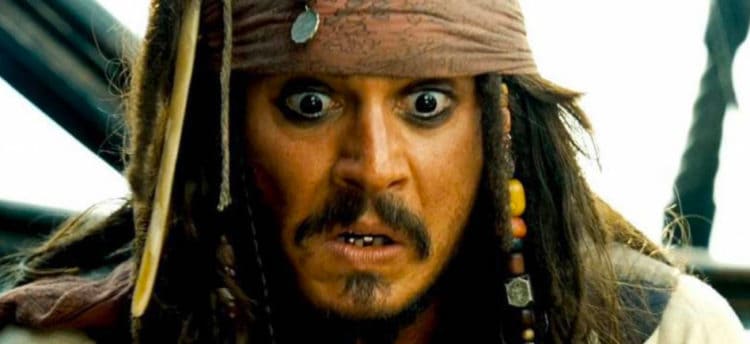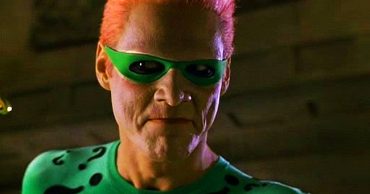
Seafaring adventures offer the opportunity for discovery: not just the ability to find new far-fetched lands, but to uncover what lies beneath the human soul during such deep adversity. After all, boat-based journeys have formed the basis of civilization, allowing us to trade with countries far away from us, while also requiring huge amounts of stamina and strength from the crew.
Therefore seafaring tales are often about the limits of lawlessness – the ways that conventional modes of behavior find themselves under deep pressure from isolation, lack of sexual contact and adverse weather conditions. Predominantly masculine tales, they see what really makes a man when you take away all of his home comforts.
To celebrate the best seafaring tales around, we have compiled an essential list of five films and franchises for you to drop your anchors in. We have avoided any submarine or cruise-ship based (disaster or otherwise) tales, as they can often fit into their own specific genres. The focus is largely on sailing-based tales, as these really test the mettle of the characters as they battle on a personal and physical level. Read on below to see what we’ve picked. Disagree with our suggestions? Let us know in the comment section below.
The Bounty (1984)
The Mutiny on the Bounty, a historical event where the disaffected crewmen of the eponymous boat, took control over the ship, has long proved fodder for a variety of films. There were four film adaptations of the classic story, including one featuring Charles Laughton and Clark Cable, and another with Marlon Brando and Trevor Howard. Our favorite however, is the 1984 version starring Anthony Hopkins as the imperious Lt. William Bligh and Mel Gibson as the rebellious Fletcher Christian.
A true product of the 80s, The Bounty has a particularly romantic vision. Featuring incredible cinematography, lush settings and a gorgeous score courtesy of Vangelis, The Bounty is a truly transporting experience, allowing one to really imagine what it would have been like to be the first men traversing across the Pacific Ocean. Additionally, The Bounty adds a layer of homoeroticism missing from previous versions, allowing us to imagine the latent sexual desire that would build up when hundreds of men are grouped together in a cramped boat during long sea-voyages.
The Pirates of The Caribbean Franchise
While undoubtedly the quality of the never-ending series changes wildly from installment to installment, at their best, the Pirates of The Caribbean films are fine swashbuckling adventures. Based on a ride at Disneyworld, these Bruckheimer-produced films managed to bring back seafaring tales in a huge way. The first film, The Curse of the Black Pearl, which introduced us to the iconic alcoholic pirate Captain Jack Sparrow (Johnny Depp) and an undead troupe of marauders looking for revenge, is a swift, fleet, and entirely enjoyable swashbuckling adventure.
Subsequent entries would dive more into the historical epic, horror and farce territory, showing that the seafaring adventure can be especially malleable. Now the franchise is five films deep with a sixth on the way; and while the returns have been considerably diminishing, even entries such as On Stranger Tides have been strangely watchable.
Master and Commander: The Far Side of the World
If the world of Pirates of The Caribbean is far too fantastical for you, Master and Commander: The Far Side of the World offers an almost vérité experience of 19th century seafaring. Starring Russell Crowe as sea commander Captain Jack Aubrey, the all-male film details its thrilling pursuit of the French privateer Acheron.
An exciting exploration of what it takes to command a ship and the excitement of sea-battles, Master and Commander: The Far Side of the World was a decent box office hit, despite its huge budget of $150 million. The strange thing about this film is that it garnered no sequels, especially considering that it garnered 10 Oscar nominations. With over 20 novels in the Aubrey-Maturin series however, there is plenty of material for future installments. If Russell Crowe is game to return, then we are too!
All Is Lost
In the twilight phase of his career, Robert Redford has taken on really some fascinating projects. No more so than the modern-day tale of All is Lost, a minimalist voyage in the Indian Ocean with a cast of one. Redford plays an explorer enjoying a solo sailing expedition when he wakes up to find that his boat has collided with a shipping container, leaving a huge hole in the side.
The rest of the film, written and directed by J.C. Chandor, methodically details his attempts to patch up his ship and survive as it slowly fills with water. The joy is in the details, making us really believe that we are on the ship alongside the central character. An intense, riveting guide of how to survive any problematic issue sailing may toss up, All is Lost is held together by the quiet, dogged determination of its central character, all thanks to one of the best performances of Redford’s career.
Lifeboat
Alfred Hitchcock could take on any genre and bend it to his will. Lifeboat is no exception, taking the stranded-at-sea genre and putting his own unique spin on it. Featuring Tallulah Bankhead, William Bendix and Walter Slezak, it tells the story of a group of evacuees on a lifeboat set adrift in the ocean after a German u-boat has sunk their passenger vessel. When they find out that one of their passengers is from this u-boat, they face a complex moral dilemma.
Hitchcock conjures up a whole host of different characters here, pioneering the close-quarters genre that can be seen persisting to this day. Survival is paramount, but there is also the key question of what to do about the German. This made it controversial upon its release for its supposedly sympathetic portrayal of a Nazi captain, yet Lifeboat has risen in stature to be one of Hitchock’s best limited-setting films, along with Dial M for Murder, Rear Window and Rope.
 Follow Us
Follow Us





